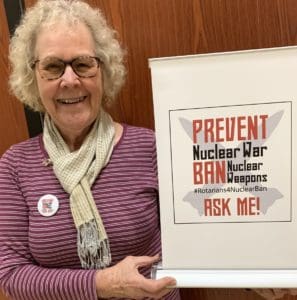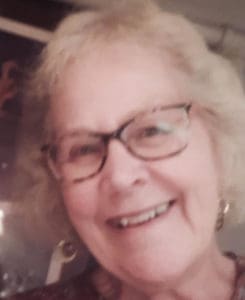The Soul of Peacebuilding and Mediation. Member Spotlight: Frances Jeffries
Frances grew up in a military family, and by the time she reached college, she had been to 13 schools. She was constantly adjusting, and it is only now that she has realized the role this has played in her mediation philosophy and approach. She stated, “In this military life you learn that you keep in touch with people whom you’ve known because sometime somewhere you will meet again.” Thus, creating a network and valuable community long-term. She further stated, “in the military life, there is an odd sense of community—one on the base and the other in the local community. You must understand both.“
Engaging in Peacebuilding
 As a high school senior, she recalled writing a paper about Rosa Parks, which created unease and anger among some of her teachers. In the paper, she stressed Rosa Parks’ role in pushing for equity among the existing context at the time. Even though told to write on another topic, she stood by her writing and solidarity with the political climate at the time. Fast-forward years later, the Women’s Movement and the Civil Rights Movement began to take precedence, giving her opportunities to engage in mediation efforts. Frances saw that long-term thinking was essential. She stated, “After you march, then what? That community needs to still find the strength to address its own issues. Therefore, it is key to ask, whose voice can best be heard for a particular issue or in a given moment?” The voice should be in line with the context and issue being tackled.
As a high school senior, she recalled writing a paper about Rosa Parks, which created unease and anger among some of her teachers. In the paper, she stressed Rosa Parks’ role in pushing for equity among the existing context at the time. Even though told to write on another topic, she stood by her writing and solidarity with the political climate at the time. Fast-forward years later, the Women’s Movement and the Civil Rights Movement began to take precedence, giving her opportunities to engage in mediation efforts. Frances saw that long-term thinking was essential. She stated, “After you march, then what? That community needs to still find the strength to address its own issues. Therefore, it is key to ask, whose voice can best be heard for a particular issue or in a given moment?” The voice should be in line with the context and issue being tackled.
Frances continued to be involved with a number of mediation-focused projects and in the process learned about MBBI at a Rotary Convention. She met Ken, Steve, and Rotary Peace Fellow, S. Martin. As both a Rotary Peace Fellow and a Rotarian, she saw the opportunity in the MBBI-Rotary partnership to foster a greater alliance between both organizations. In this context and many others, she said, “Networking is my way of mediating. I am a firm believer that you have to bring everyone to the table, to allow for each individual or group to clarify expectations, before starting your mediation. I believe you need to help people prepare and do some groundwork.” She further stated, “Mediators are peacemakers I am a firm believer of non-violent peacebuilding. You keep practicing at it because you do get tested.”
Organizing in Rotary
Currently, Francis is working on anti-racism efforts in her community and in her Rotary Club. In her world community, she focuses on nuclear weapons abolition, which she considers our “the number one public health issue.” She currently consults with communities, people, and stakeholders about the goals, directions, and content of mediation meetings, thus, laying the groundwork for all parties. However, her inspiration for formalizing networking in her life in the spirit of mediation comes from her past encounters heavily shaped by a mentor who stressed the importance of profile examination.
She stated, “her notion as an anthropologist, you do not know where your commonalities intersect with others, so you at least need to exchange contact information. That is how she saw the whole picture.” Though she recognizes that there are many people who are official mediators, her role differs because she is really the one who gets the whole room prepared for mediation to happen. Though it will take days and weeks to get people prepared for mediation, it is important for people to know what to expect.
Bringing Realistic Perspectives to the Table
 Frances’ teachings and insights are grounded in her training and educational background as a counselor, a role that she has embraced to the fullest in the process of mediation. In her group work, she stresses the importance of respect to all parties. She states, “the mediator’s job to hold to the potential that each person has to resolve their own problems and really owning them. It is the only way that the solution will be sustainable.” It is essential that respect is evident and value-based dialogue is the goal.
Frances’ teachings and insights are grounded in her training and educational background as a counselor, a role that she has embraced to the fullest in the process of mediation. In her group work, she stresses the importance of respect to all parties. She states, “the mediator’s job to hold to the potential that each person has to resolve their own problems and really owning them. It is the only way that the solution will be sustainable.” It is essential that respect is evident and value-based dialogue is the goal.
In creating this atmosphere, the whole group is tapping into each individual’s strengths for the best mediation scenario possible. She is often asked how one gets involved. Frances shared, “It is simple. Show up at a rally, or a meeting, or any gathering. Learn what is going on, what the group wants to achieve. Determine the best or possible beginning role for yourself. Don’t leave without contact information and your next action step! Finally, follow up with a message to your new contacts.” Frances embodies MBBI’s mission and philosophy to the fullest bringing unique, realistic perspectives to the table.
Article by Elizabeth Gamarra, MBBI Writer
